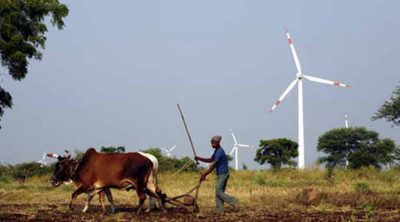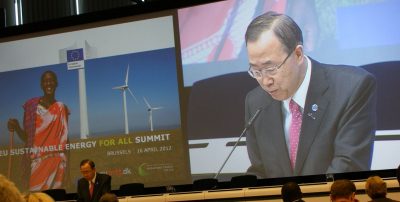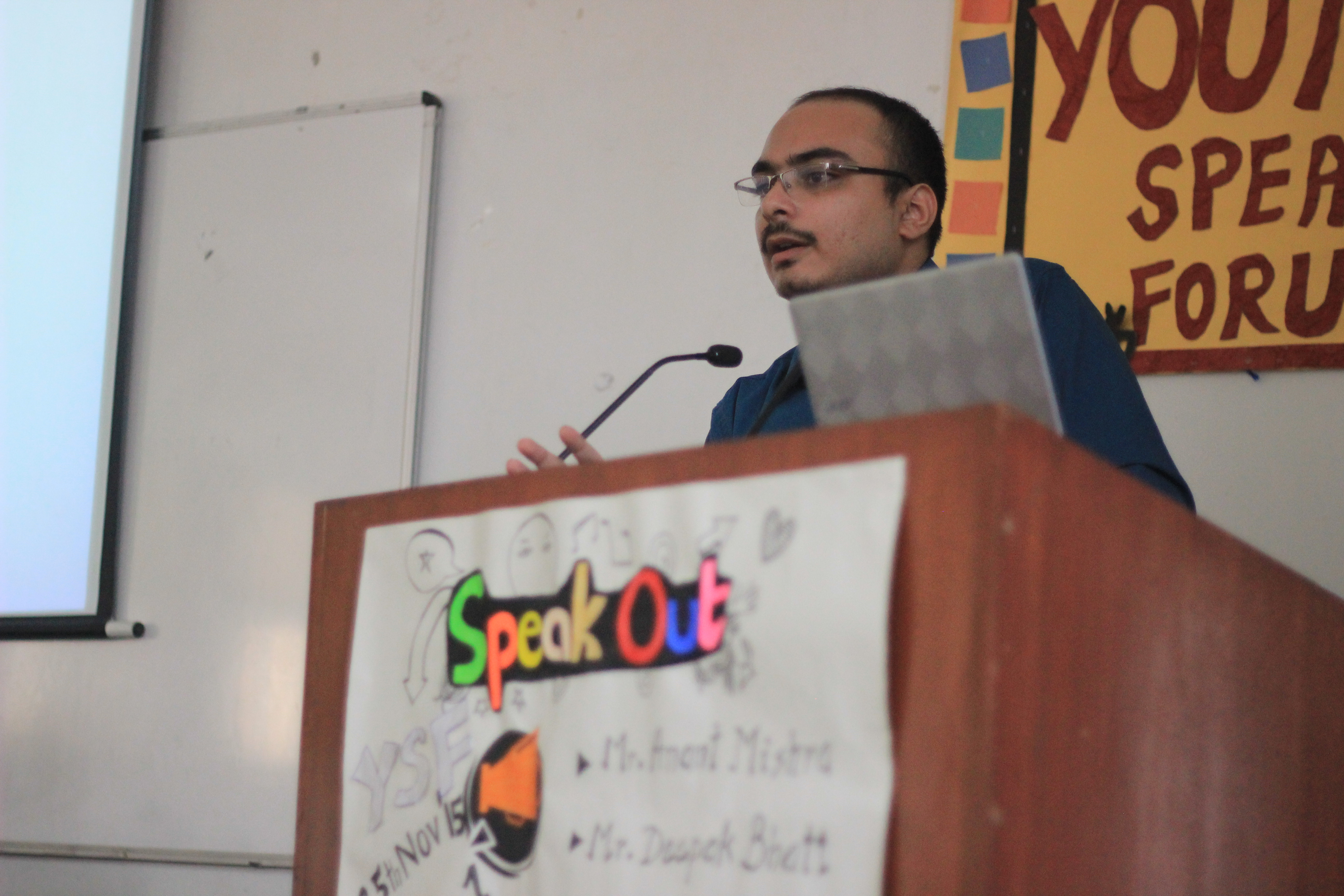By
Anant Mishra
Introduction
Almost 30 years ago, the concept of sustainable energy was still in its infancy, unexplored, undiscussed and relatively without a use. In other words, the concept of renewable energy received no attention from the political leaders or the policy makers then.
Moreover, looking with respect to the concept of sustainable energy, the world was curious about climate change then, but did not prioritise. The world wasn’t introduced to environmental effects, harmful effects of waste, even as public dialogue rarely and briefly addressed climate change. Then climate safety and self-resilience energy were unintroduced, whereas negligent practices and poor energy policies adversely affected climate, passing the baton of safeguarding climate to us.
Coming to the United Nations Framework Convention on Climate Change (UNFCCC) of 2015, it was clear that sustainable energy would be difficult to achieve. Western countries have an edge on technology and innovation, economic stability and yes, the industries. This makes achieving sustainable energy less difficult for them. With more educated classes, they are aware of the problems, right from sustainability to energy efficiency. Armed with innovation and technology, the progressive idea for a sustainable world is “reachable” for them. Undoubtedly, these countries can easily achieve sustainable development.
However, most of the countries have already began their initiatives on green energy, and are still in need for improvement. For instance, underdeveloped economies, do not have the necessary means, nor the financial/infrastructure to invest in green technologies. As the challenge is greater for underdeveloped economies, the discussion of “green energy for all” becomes imperative for policy makers, policy leaders from the developed world and international development institutions.
The journey so far
Change is evident, whether you talk about changing policies with respect to green governance, changing energy resilience or changing attitude, change is imminent. Since its establishment, Sustainable Development Goals (SDGs) has been a key initiative of the UN and a new benchmark for the global nations. This discussion also took place during the United Nations Framework Convention on Climate Change of 2015, which deliberately brought out key challenges and policies that needed to be addressed. Energy was the primary agenda.
Kyoto Protocol
Adopted on 11th December 1997 in Kyoto, Japan, it is one of the most important discussions addressing the importance of energy and sustainability. Receiving heavy complexities in the initial days of ratification, it came into force on 16 February 2005. Basically, the Kyoto protocol is the “operating tool” of the convention. It raising the commitment level of development countries towards stabilisation of greenhouse gases, which the convention encourages the nations to do so.
Goal 7
The Sustainable Development greatly affects the consensus of government planning and development initiatives, while bringing positive effects, the government should strictly implement it in their own development agenda. The Goal 7, which focuses on energy, also focusses on three targets bringing out the growing discontent in policy approach along with international disputes with respect to energy production. These targets were stated clearly in the objectives of the Sustainable Energy for All initiative which was launched by the UN Secretary-General Ban Ki-moon in 2011.
Moreover, it also stated that “energy is an essential factor for sustainable development and poverty eradication”. It is also important for us to understand that, even as the Sustainable Development Goals have been on, over 2.8 billion people still lack easy access to energy, while more than 1.1 billion continue to live in darkness. It is not only about the survival without electricity or the growing energy demands or the necessary needs of underdeveloped nations in achieving sustainable energy, it is about the 4.3 million premature deaths that result indirectly by indoor cooking and using unsustainable fuels. However, MDGs do not directly address the issue of energy directly, it is now being seen as a key element in sustainable development. Undoubtedly, energy is a key factor for sustainable development.
Now, looking at the global situation of energy today, developing and developed economies continue to face difficulties in accessing such energy resources, which fail to provide necessary growth and development. In developing countries, limited access to affordable and reliable energy makes increasing productivity and promoting economic growth more challenging. Development of an infrastructure that provides sustainable, reliable, and affordable access to modern energy services could not only improve the economic status of people, communities, and countries, but also significantly improve living standards.
As energy is necessary for sustainable development, policy makers need to address this using sustainable development goals. As a matter of fact, looking at the initial stages of MDGs, we can easily see our achievements and using them, we can then prepare an estimation to successfully achieve it.
According to the International Energy Agency, over 1.6 billion people lacked access to energy in 2002. In the same year, OECD stated in its report that there was an “absence of government initiatives and lack of interests of key private entities in development”. If we continue with the current statistics, over 1.4 billion people (almost 18% of the global population) would be living without electricity in 2030. It is important for policy makers to understand thatwe were quite unsuccessful in achieving the energy targets of the MDGs, as less than 1.1 billion (a meagre 15% of the global population) thrive in electricity today.
During the past decades, we have seen significant advances in technology followed by an exponential increase in population. Putting technology developments aside, if the aforementioned projection turns out to be true, then we would not only be failing to achieve key targets in sustainable developments, we will also be failing to achieve necessary growth and development. Let us assume our pace to be constant 10 years from today, this will then result in over 600 billion out of electricity. The Goal number 7 of Sustainable Development states to “Ensure access to affordable, reliable, sustainable and modern energy for all”.
Now, this brings us to the question, ‘what can we do to achieve this goal?’ In order to achieve sustainable energy, policy makers need to first ensure that the energy is first sustainable and there are adequate technology advancements to harness it. Here, we are talking about energy resources such as geothermal, hydro, solar, and wind. According to the OECD report published in 2014, we have a very small percentage of energy produced using renewable energy resources. We continue to rely on fossil fuels and nuclear energy. Moreover, the OECD report further states “a sharp increase in the need of renewable energy sources to 33%”; but after looking at the growing need of renewable resources, policy makers need to ensure the availability of modern and sustainable energy to all.
In order to harness the renewable energy resources, we need state of the art technical equipment and to operate these, workers would need to go through necessary training which would subsequently increase the cost as compared to the conventional energy resources. This then becomes a challenge for developing economies as they are unable to cope up with the increasing costs. Thus, concerned with the increasing costs, relevant organizations look for cheaper options: fossil fuels. Developing sustainable energy resources takes time, along with technological needs and financial resources. Hence, in order to provide sustainable energy to all, policy makers and relevant energy resources need to cooperate and coordinate with relevant agencies along with inter-governmental organizations to provide energy for all.
This is precisely where Goal 7 is lacking: you cannot fulfil a commitment with two out of three essential factors missing. It is also important for us to understand that, most of the negotiation process results in delaying the implementation and action plans of the initiatives, and the final outcome remains inconclusive forcing the development agenda to fossil fuels and non-renewable resources until the next discussions. Policy makers should also focus their attention on “ensuring universal access to affordable, reliable and modern energy services” making their focus on “sustainability:” instead of fossil fuels.
Indeed, the Goal 7 of Sustainable Development Goals, is ambitious, but achieving the target will be not be easy, especially when developing and underdeveloped economies face numerous challenges shifting from non-renewable to renewable resources.
Solutions at hand
Strengthening Infrastructure and economy of Least Developed Economies
It is imperative for developed economies and international aid development agencies along with UN agencies to support infrastructure development and strengthen economy of least developing economies. We need to work together, and policy makers need to understand this by identifying innovative and concrete solutions to strengthen economic support. Policy makers to need to ensure timely cooperation and coordination with relevant agencies, in an effort to support infrastructure development and overall growth. By only through these practices we will be able to ensure sustainable energy for the future. Most importantly, policy makers need to entertain the local experts and local development organizations as increasing the number of stakeholders will fruit positive outcomes. This will then boost employment, which will in turn boost economy of the nation.
Bibliography
- http://www.world-nuclear.org/information-library/energy-and-the-environment/sustainable-energy.aspx
- http://unfccc.int/essential_background/kyoto_protocol/items/60.php
- http://unu.edu/publications/articles/concrete-targets-sustainable-energy.html
- http://unfccc.int/essential_background/items/6031.php
- http://www.preventclimatechange.co.uk/what-is-being-done-to-stop-climate-change.html
- http://unfccc.int/key_documents/bali_road_map/items/6447.php
- http://www.scientificamerican.com/article/10-solutions-for-climate-change/
Anant Mishra
Anant Mishra is a security analyst with expertise in counter-insurgency and counter-terror operations.




No Comments Yet!
You can be first to comment this post!